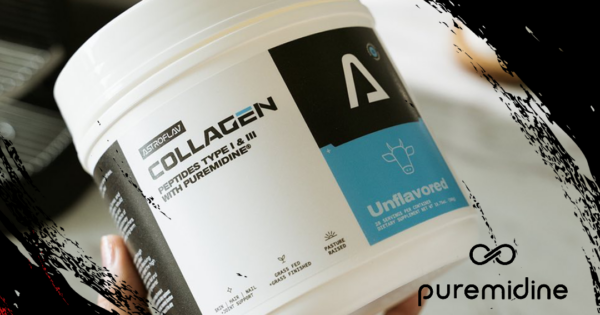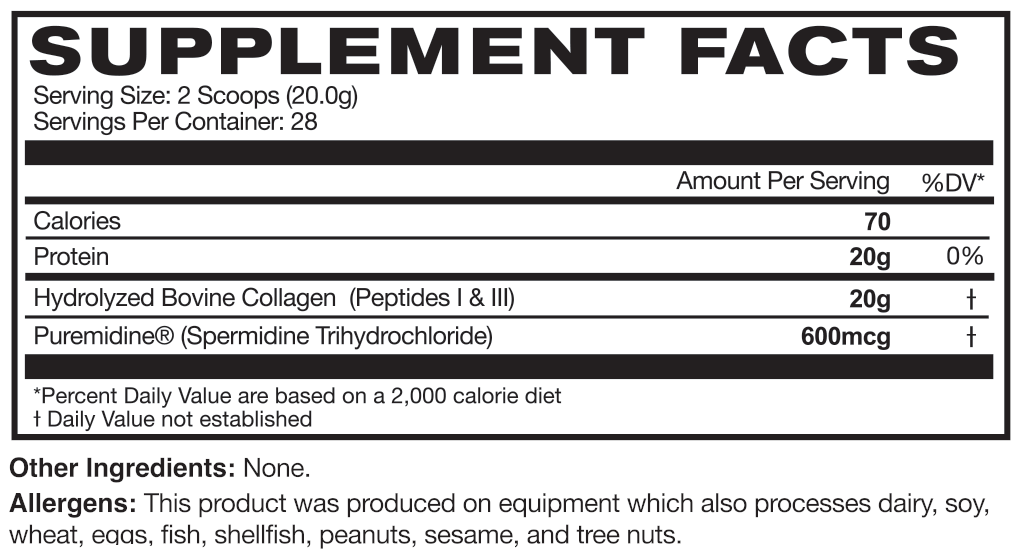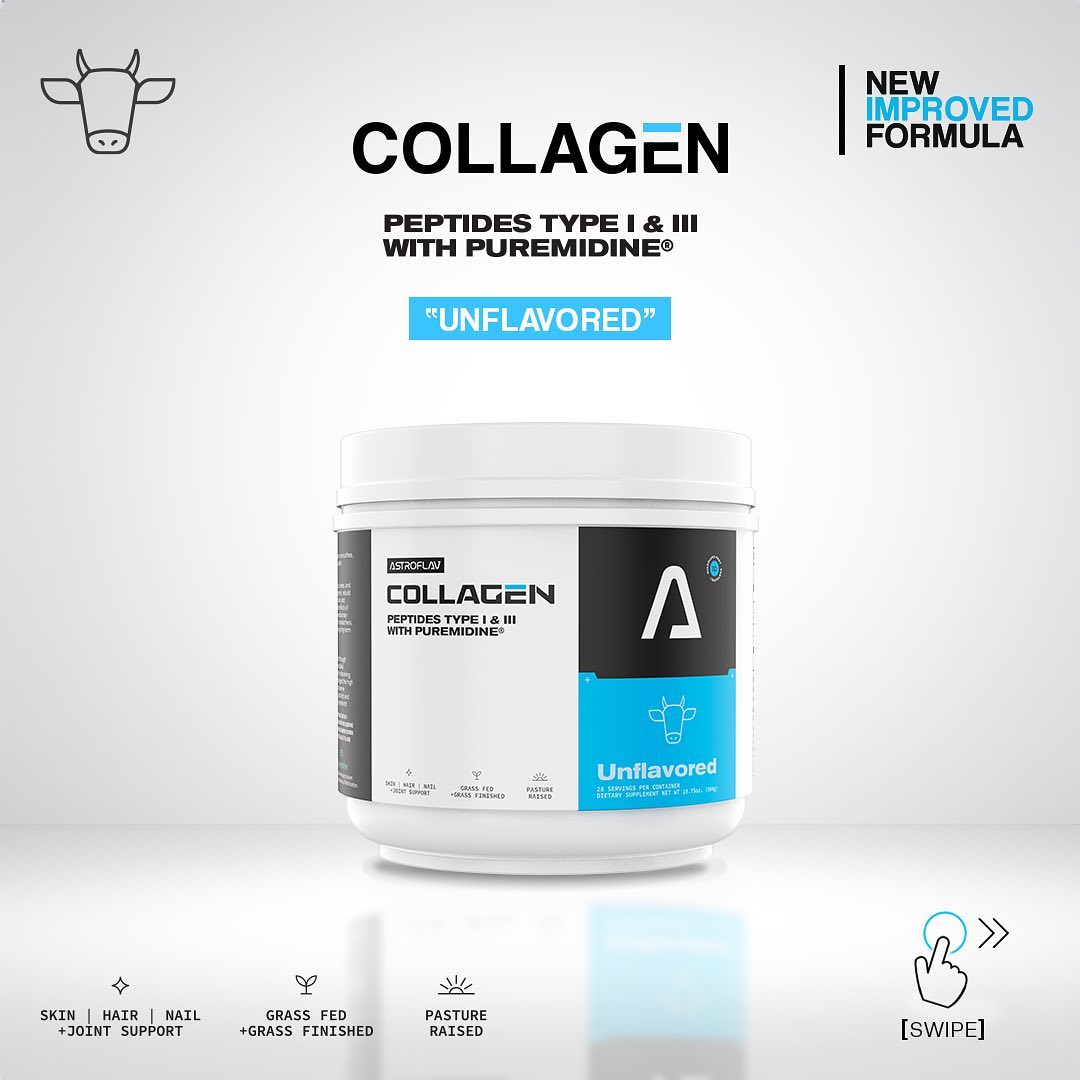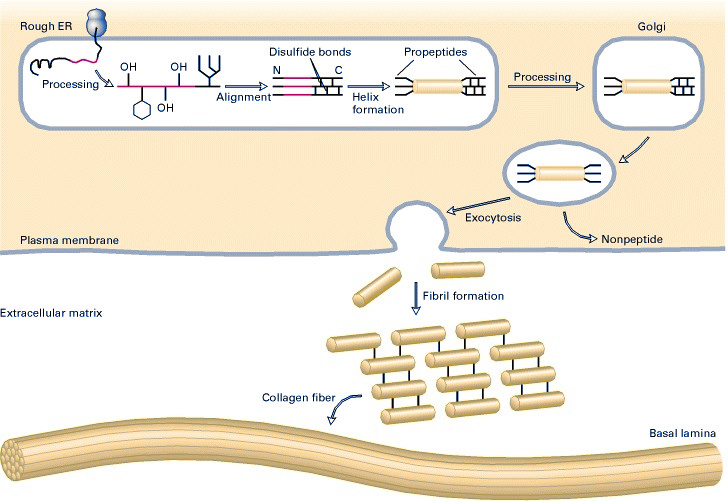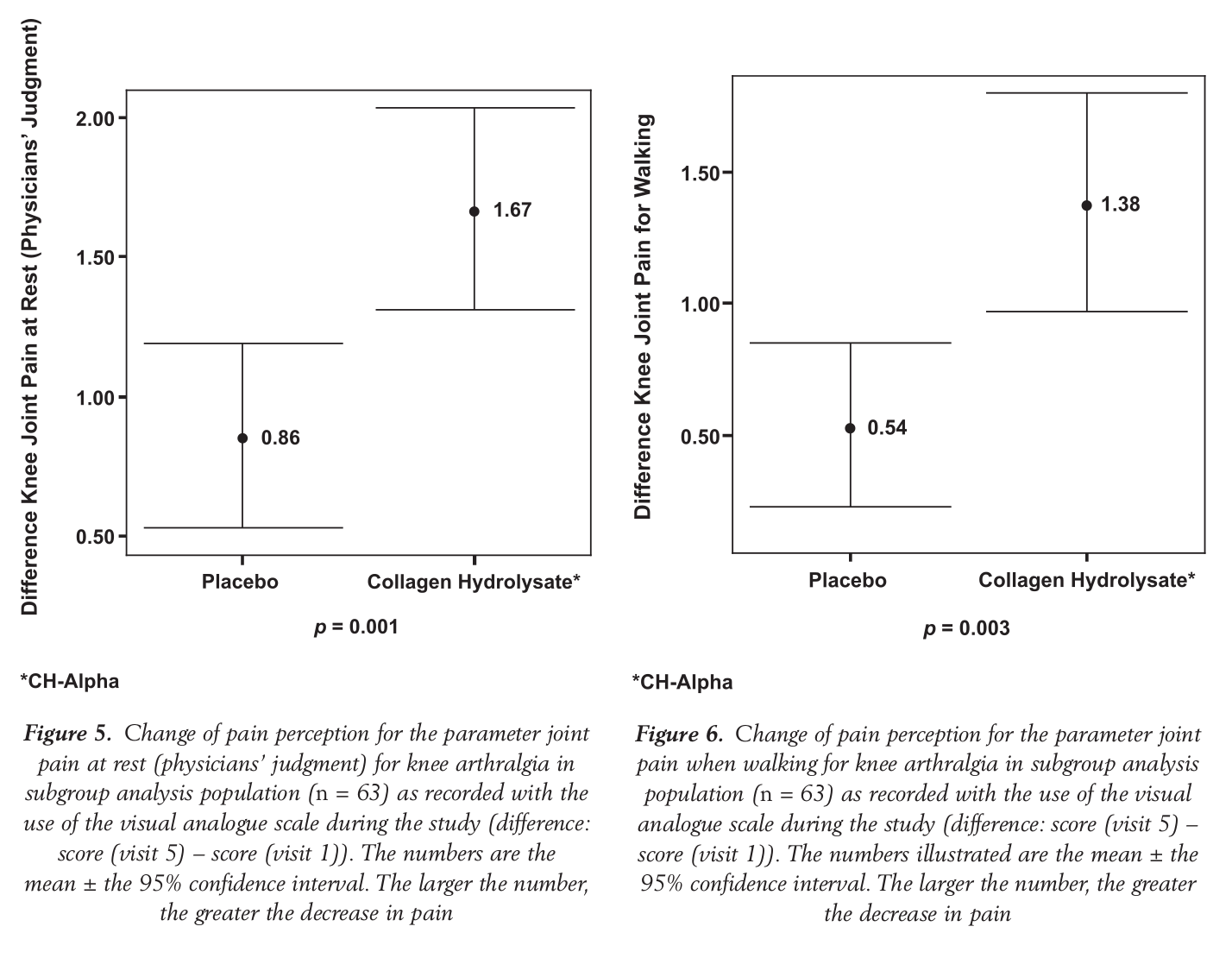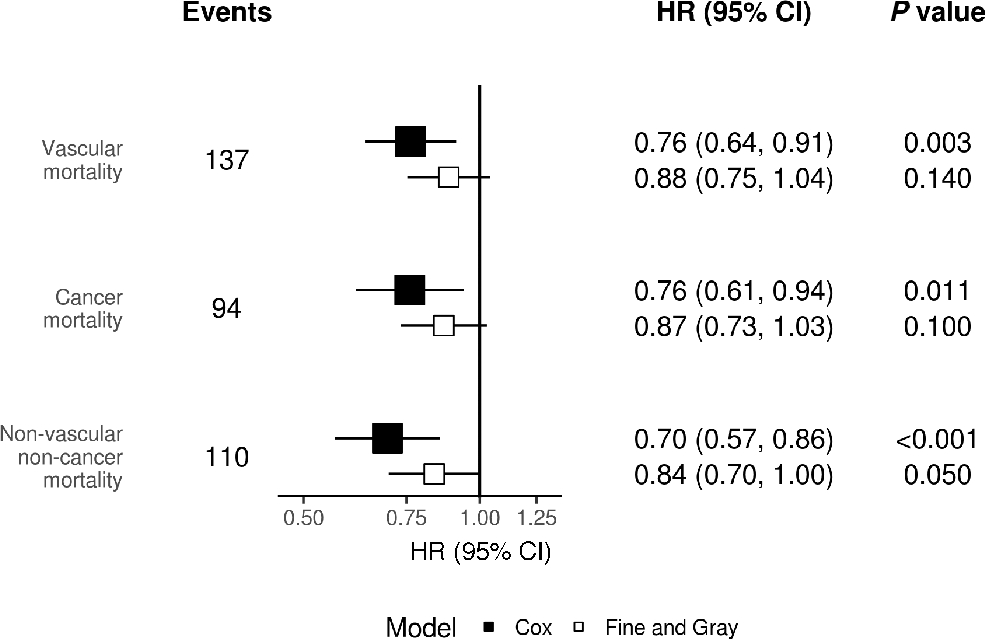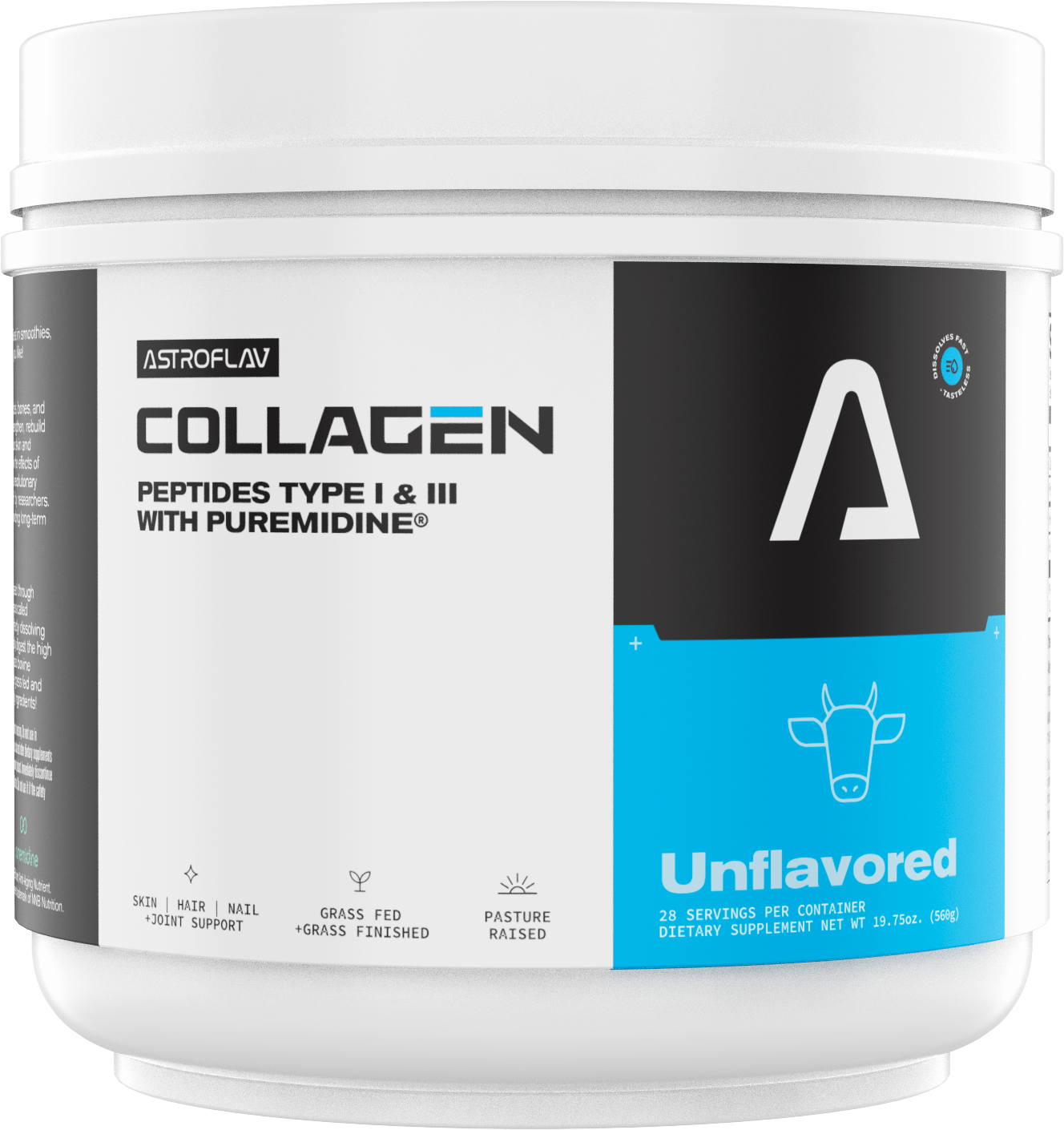Subtotal: KSh 6,499.00
AstroFlav Collagen Upgraded with Anti-Aging Puremidine
Hydrolyzed Bovine Collagen (Peptides I & III)
It turns out that most collagen research studies we cite in other articles actually use collagen protein hydrolysate, so we have a near perfect match here:
The benefits of collagen hydrolysate
Also known as collagen hydrolysate, this ingredient is made from collagenous tissue that has undergone an extraction / purification / concentration process and was then treated with enzymes (enzymatic hydrolysis) to break down the bonds. This makes them shorter and easier to digest, but also makes them non-gelling that dissolve easily in water.[1]
Preclinical research has shown that collagen hydrolysate is able to completely pass the mucosal barrier in the small intestine thanks to its shorter structure.[2] It then stimulates production of collagens in the extracellular matrix,[3,4] which is described below.
With the key ingredient explained, let’s dive into the the science behind its use:
What is collagen?
Ignoring water content, your skin is made of about 80% collagen, which can be considered the scaffolding, or primary structure supporting the skin and other soft tissues — also known as the extracellular matrix.[5] Consider collagen to be the “glue” that keeps skin and other soft tissues together.
Collagen is what keeps skin flexible – it’s composed of three amino acids — glycine, proline, and hydroxyproline — in a triple-helix structure that easily bends and folds.[5] Collagen peptide bonds are formed by our cells keeping to hold our tissues (and thus our bodies) together.
The issue is that modern diets don’t always achieve great enough intake of the amino acids above. An easy way to get collagen is to eat collagen-containing foods, such as skin, bone broth, and meat off the bone. Unfortunately, these have fallen out of vogue in the world of processed, plant-based foods, making supplementation extraordinarily beneficial.
There are two most common types of collagen:
- Type 1 collagen: the most abundant type of collagen in vertebrates that’s used to support skin, bone, eye, and other structures.[6]
- Type 3 collagen: generally found alongside type 1 collagen, but is more abundant in blood vessels and connective tissues of organs such as the liver, lymphatic system, veins, and bone marrow.[7]
The question is, can supplementing collagen lead to improvements in connective tissues? The answer is yes:
The benefits of collagen protein
Research has demonstrated that supplementing with collagen protein can lead to numerous benefits in both young and old individuals. We have seen:
- Reduced joint pain after six months with just a 1.2 gram dose[8] and a 10 gram dose[1]
- Improved hair, skin, and nail health[9,10] – improved skin elasticity[9] and less nail breaking![10]
- Better cardiovascular health endpoints (better HDL cholesterol)[11]
Additionally, the effects seem to be longer-term than most supplements: The study demonstrating improved skin elasticity showed that the beneficial effects remained 4 weeks after supplementation stopped.[9] This implies that collagen has some lasting power.
May help athletes, but we still suggest more muscle-building protein
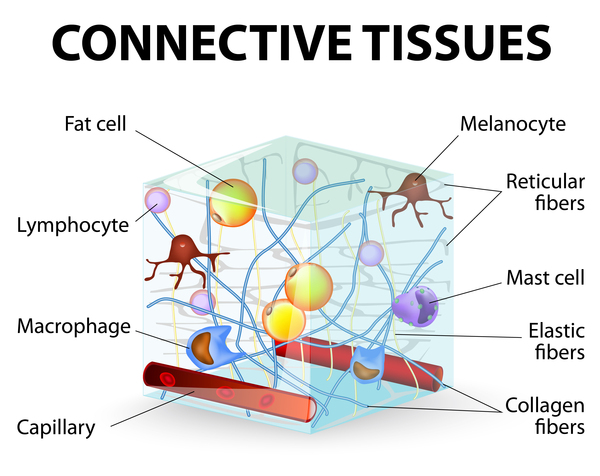
The collagen helps hold it all together – support collagen and support your connective tissues! Image courtesy NIH.
For the AstroFlav athletes out there, the study demonstrating reduced joint pain also led to improved recovery time.[1] However, we always like to make clear that collagen shouldn’t be substituted for muscle meat and muscle-building protein (such as IsoMix or VeganMix), but this is still great to see.
Reason being, collagen’s higher levels of glycine, proline, and hydroxyproline crowd out some of the other amino acids that are important for muscle protein synthesis and mTOR stimulation.[12] This is not a big deal so long as it’s marketed properly, and you still know that you’ll want to get proteins with complete amino acid profiles high in all of the essential amino acids, especially the BCAAs. AstroFlav can obviously help you out with that (see also Full Tank, which has EAAs and carbs for intra-workout training).
But now, it’s time to get into the real unique aspect: Puremidine!
Puremidine (Spermidine Trihydrochloride) – 600mcg
Puremidine is a trademarked form of spermidine from the novel ingredient developers at NNB Nutrition, the same company that brought us the MitoBurn featured in AstroFlav 2X weight loss amplifier and NucleoPrime in the One Scoop Only pre-workout.
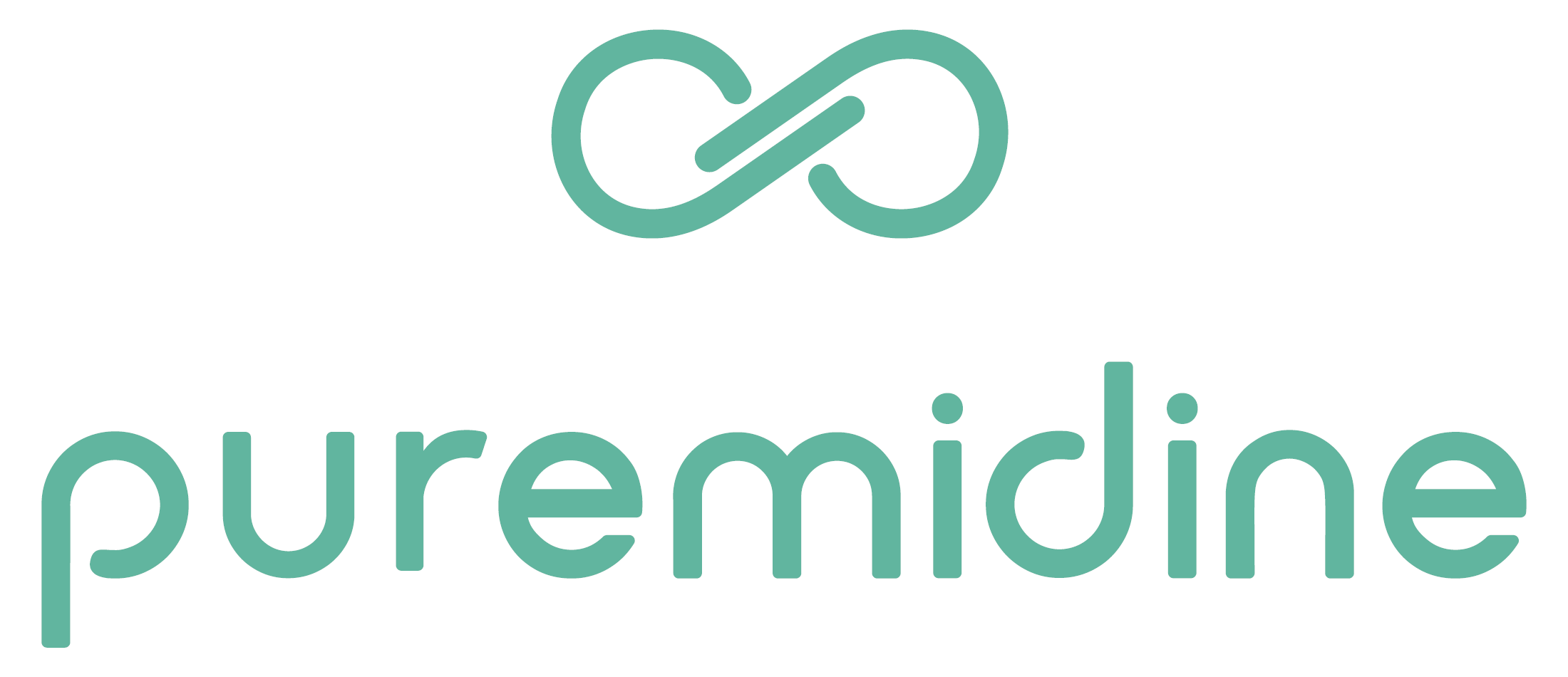
Ready to take on the anti-aging benefits of spermidine supplementation? Then it’s time to look at formulating your next supplement with NNB Nutrition’s Puremidine.
This ingredient is incredible because it can mimic the effects of autophagy.[13] Before we get into the study, first, we must understand what autophagy is:
Autophagy: Enabling cells to recycle defunct organelles
Autophagy is a natural mechanism in the body where the cells recycle old and defunct organelles.[14] This is a complex process we often hear about when talking about intermittent fasting,[15] where enzymes eventually break down old cell parts, allowing the host cell to re-assemble new healthy organelles in their place.[16]
It’s a process of self-renewal — out with the old, in with the new.
On top of fasting,[15] exercise can also stimulate autophagy.[17]
Research shows that when this process is impaired, there’s increased association with age-related diseases and metabolic disorders.[16,18] Like many processes, autophagy activity deteriorates as we age.[18]
But there’s hope in the form of some anti-aging ingredients — one of which is spermidine.
Upregulation of autophagy with spermidine
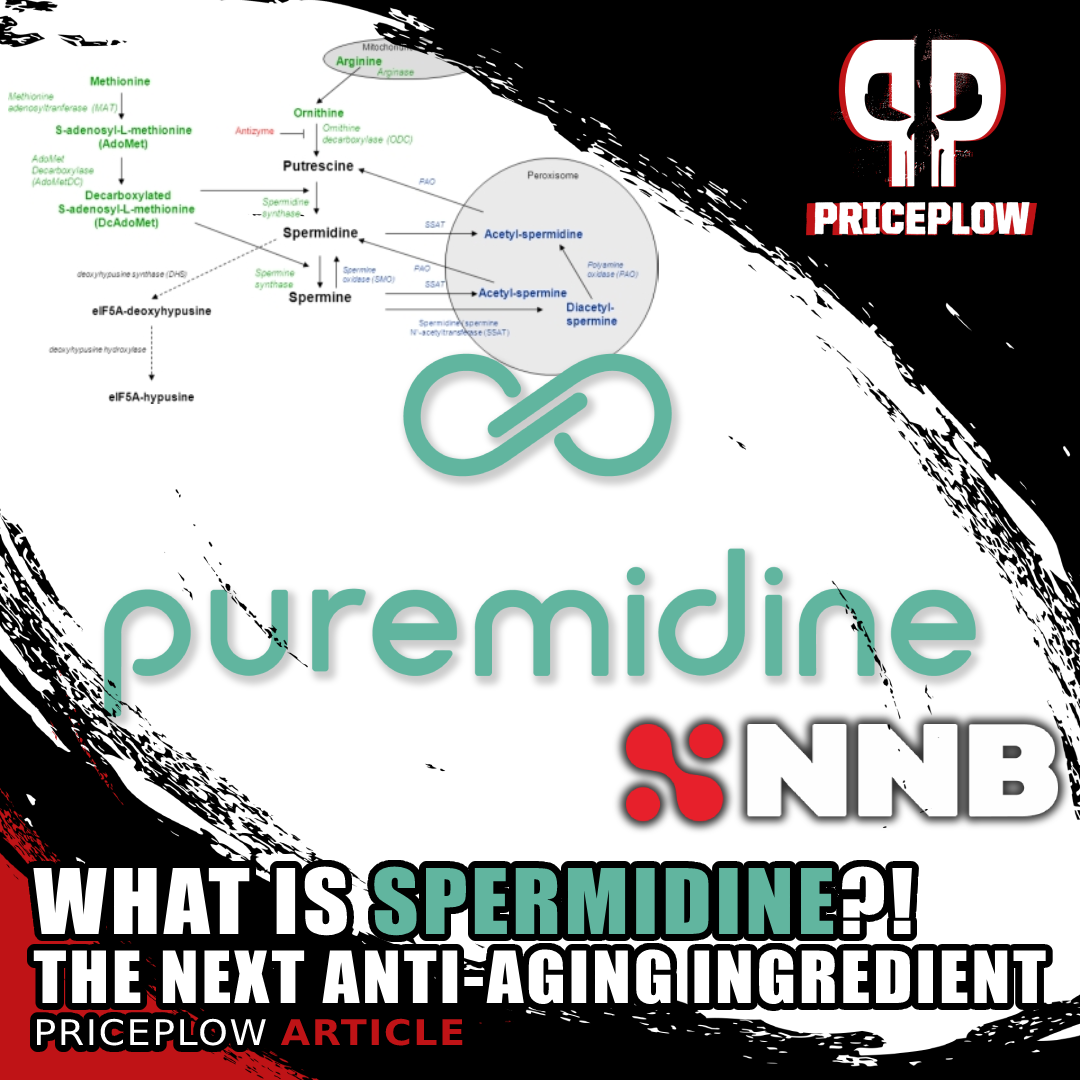
What is Spermidine?! This next-generation anti-aging ingredient is known as a polyamine, and it’s now available as NNB Nutrition’s Puremidine
Spermidine is a polyamine — a molecule with positive ionic charges in multiple locations — that can be used to facilitate biological functions. It’s found in nutrient-dense foods like mushrooms, broccoli, and organ meats.[19,20] Naturally, this makes us wonder if supplementing more of it could support longevity and anti-aging goals.
In 2009, a landmark study was published finding spermidine could indeed extend lifespans of several organisms, including human immune cells, yeast, worms, and flies.[13] It was discovered that it led to an increased level of autophagy, and the researchers postulated that cellular renewal was the primary reason for its success.
Another study in 2009 compared spermidine against resveratrol in yeast, flies, and nematodes, and found that both worked, and through different mechanisms.[21] This is exciting because resveratrol hasn’t fully panned out in humans, but new research is showing that spermidine may in fact be the ingredient we’ve been looking for. We’ll get to human data, but first let’s look at more animal models:
Spermidine in Mice: Extended Lifespan
In 2017, researchers published a placebo-controlled trial on mice using supplemental spermidine.[22] They showed that the mice who ingested spermidine lived significantly longer lives and had reduced chances of liver fibrosis and cancer.[22]
In fact, the mice given spermidine lived 25% longer than the control mice — and the younger the mice were when they began supplementation, the longer they lived![22]
Looks great, but what about humans?
Human Data: Greater Spermidine Intake → Lower Mortality
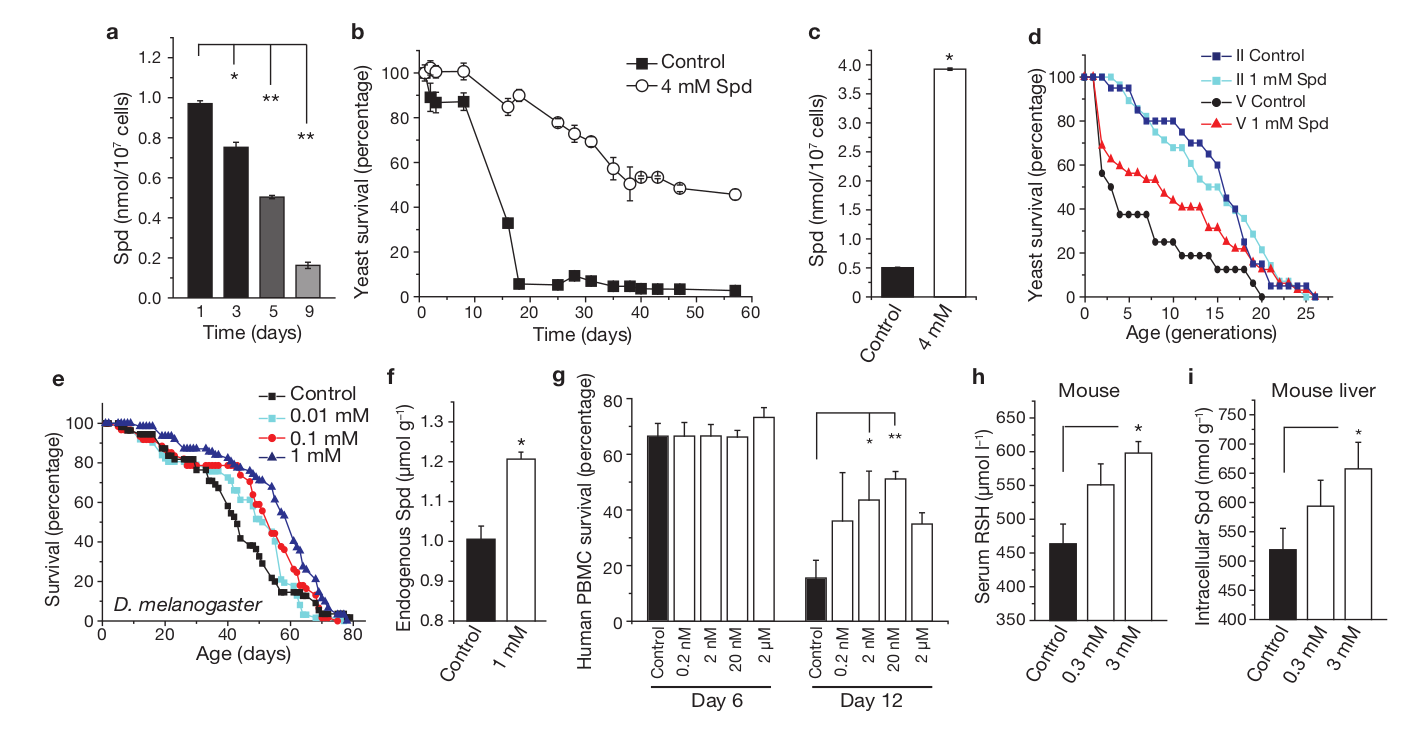
Spermidine extends lifespans of yeast, flies, and human immune cells while inhibiting oxidative stress in aging mice.[19801973]
First, some data by association: In 2018, researchers analyzed the diets of 800 volunteers who were 45 years old, collecting the data for two decades.[23] After over 2,500 separate assessments, incredible amounts of data were discovered.
One thing the data determined was that greater intake of spermidine-rich foods lead to reduced mortality![23]
Human Research: Spermidine Leads to Improved Cognition in Elderly
In 2020, the anti-aging community began to get the answers they were looking for. A study was published on seniors with dementia aged 60 and 96 years.[24] They were given 3.3 milligrams of spermidine six days per week, while a second group received 1.9 milligrams six days per week. These methods lasted three months.
After those three months, the cognitive scores from both groups were significantly improved compared to their baselines.[24] The higher-dose group had greater scores too.
New human study from June 2023
Then, in June 2023, a study was published literally two weeks before AstroFlav Collagen with Puremidine was launched.[25] Here, they gave older adults suffering from neurodegenerative illness 3.3 milligrams of spermidine for one year.
After just three months, it led to a positive effect on memory performance, which was the subject of the research team’s previous paper on the matter.[26]
But after an entire year, researchers saw an improvement in cognitive performance by 42%![25]
It’s worth noting that these were sick individuals, and the dose was far higher than what we have here. Lower doses may not work as well, or may take more time to work. These two studies were also not blinded.
Needless to say, Puremidine is a very promising anti-aging supplement, and it seems universal — the research above is for cognition, but spermidine should be effective for anything affected by autophagy.
To put it in a collagen supplement to help increase the daily intake of the incredible polyamine is simply a great deal. Many won’t take an “anti-aging” capsule… but plenty of folks love to take collagen. Great idea on AstroFlav for sneaking it in here!

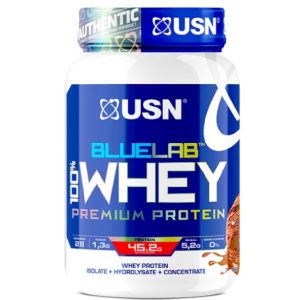 USN Blue Lab 100% Whey Choc 908GM
USN Blue Lab 100% Whey Choc 908GM 